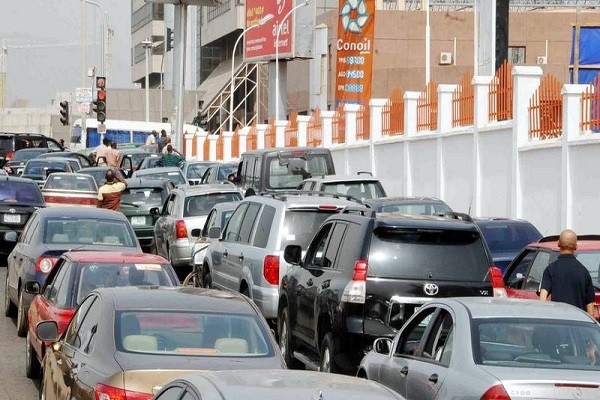Fuel scarcity bites harder in Lagos
The resurgence of queues at the pumps is not unconnected with the sharp increase in operational cost of getting prevailing situation where marketers and depot owners are challenged with sourcing foreign exchange (forex) to continue their operations locally.
The implication of this is that depot owners and independent marketers are beginning to shun petrol supply owing to the rising cost of the dollar against the local currency and the inability to source such money. This development as led to a sharp reduction in the supply of the commodity.
The Executive Secretary, Major Oil Marketers Association of Nigeria (MOMAN), Clement Isong, told The Nation that although there are vessels laden with petrol imported by the Nigeria National Petroleum Company Limited (NNPCL) on the high sea waiting to discharge, the cost of hiring daughter vessels for the operation has been discouraging due to the high cost.
Mother vessels are tanker ship that brings the product into the country but berth in the high sea, while daughter vessels are those used in conveying the product from the point of berthing in the high sea to the port before it is emptied into depot tanks.
According to Isong, hiring a daughter vessel to bring the product from onshore to offshore now cost $45, 000 per day as against the previous $20, 000 per day it used to cost because of the high cost of diesel. This is aside other charges paid including the Nigeria Ports Authority (NPA), Nigerian Maritime Administration and Safety Agency (NIMASA) among other charges.
“The challenge remains the exchange rate and the scarcity. It is very difficult to get the dollars. A daughter vessel is hired for 10 days to discharge the content from the mother vessel; this means that it has shot up from $200, 000 to $450, 000. Then marketers and depot owners also pay NPA and NIMASA charges in dollars. Yet, the dollar is scarce and difficult to get,” Isong explained.
This situation, he further explained, accounts for why many marketers and depot owners will refuse to go and lift petrol from the mother vessel and when some of them lifts, then they have to factor in the cost of the dollar and other logistics cost at their depot because no business like to operate at a loss.
In similar vein, the Executive Secretary, Depots and Petroleum Products Marketers Association of Nigeria (DAPPMAN), Olufemi Adewole, observed that the impact of forex on the business is huge. He explained that his members, earlier in the year, used to chatter daughter vessels for their operations at the rate of $25, 000 – $35, 000 per day, at an exchange rate at that time was N385/$1.
“Today, we are chattering daughter vessels at $70, 000 per day; at a point, the exchange rate hit N900 but eventually dropped to N750 few days ago in the parallel market. So somebody has to take this cost. So, any cost that a marketer incurs in the process of bringing the product to you in the retail outlet has to be recovered,” Adewole explained.
DAPPMAN’s Chairman, Mrs. Winifred Akpani, at an earlier briefing in Lagos, explained that marketers pay through their noses to get petrol now and are also heavily yoked with huge charges which are denominated in foreign exchange. She blamed the difficulty in accessing forex at the official Central Bank of Nigeria (CBN) rate as being responsible for the price differential in petrol distribution in the country. She decried what she termed the “absence of a level-playing field” that guaranteed access to dollars for all marketers at official rates.








